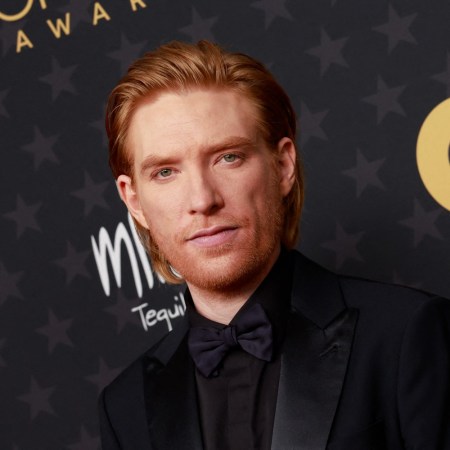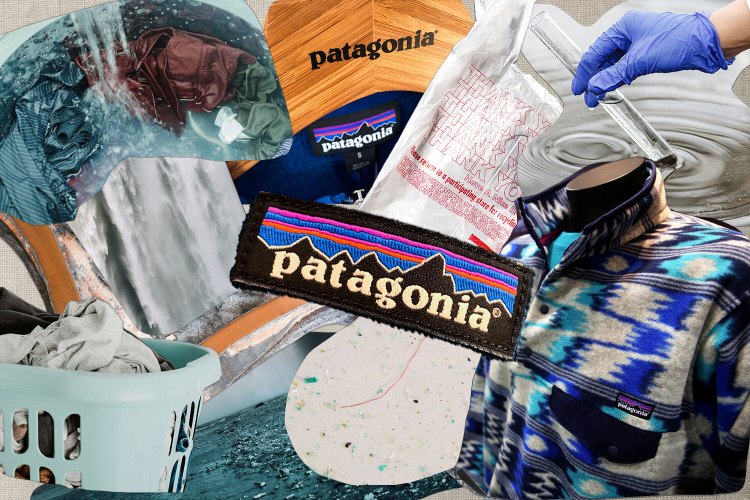You, circa January 1: “READ MORE.”
You, today, considering four dusty covers stacked on your nightstand: “I … tried?”
We’re here to help, with 25 books that made our editors — as well as a few comedic and literary veterans — laugh out loud in public.
A definitive academic consensus on literature’s funniest writing, this is not. But it is a wide and varied survey that offers something for every taste, from absurdist novels to bawdy memoirs to essays satirizing our human condition.
In other words, consider these titles a brief reprieve from a news cycle that tends to prize the tragic over the comic. And if you’re looking for Hemingway and Fitzgerald discussing a “matter of measurements,” well, that’s in there, too.
A Confederacy of Dunces by John Kennedy Toole
The setup: It’s wonderful for the mercilessly bitchy one-liners and preposterously strong opinions of choleric narrator Ignatius J. Reilly, a pre-Internet troll extraordinaire. Not even the most benign of subjects are spared his ire, from Mark Twain (“[the] veneration of Mark Twain is one of the roots of our current intellectual stalemate”) to canned food (it is a “perversion” and “very damaging to the soul”). Bonus: might help you relate to your one belligerent, disturbed but occasionally charming uncle.
The punchline: “My mother is currently associating with some undesirables who are attempting to transform her into an athlete of sorts, depraved specimens of mankind who regularly bowl their way to oblivion.”
— Athena Wisotsky, Senior Editor
A Movable Feast by Ernest Hemingway
The setup: This memoir is a great read for anyone who wants to nerd out and learn about writing, drinking or Hemingway’s nostalgia for his time in Paris. Plenty of laughs too, often at the expense of F. Scott Fitzgerald. Hemingway, oozing supercilious masculinity, has no qualms about disparaging his literary frenemy or portraying Zelda — F. Scott’s wife — as an odious succubus.
The punchline: [Hemingway and Fitzgerald are having lunch together. Fitzgerald speaks first.]
“Zelda said that the way I was built I could never make any woman happy and that was what upset her originally. She said it was a matter of measurements. I have never felt the same since she said that and I have to know truly.”
“Come out to the office,” I said.
“Where is the office?”
“Le water,” I said.
We came back into the room and sat down at the table.
“You’re perfectly fine,” I said. “You are O.K. There’s nothing wrong with you. You look at yourself from above you look foreshortened. Go over to the Louvre and look at the people in the statues and then go home and look at yourself in the mirror in profile.”
“Those statues may not be accurate.”
“They are pretty good. Most people would settle for them.”
— Eliott Grover, English Dept. Chair, Salisbury School
A Supposedly Fun Thing I’ll Never Do Again by David Foster Wallace
The setup: If you’ve read even one piece of DFW’s immersive nonfiction, you know what you’re getting into: a hyper-observative narrator finds himself in the middle of some happening to which he is a total and complete outsider, and he proceeds to manically document every single sensory detail he can, occasionally taking a break to pontificate on what the sum total of those details suggests about society, human nature and the ways we choose to derive meaning from experience. In A Supposedly Fun Thing …, his funniest collection of essays, said happenings include a Caribbean cruise, the Illinois State Fair and the set of a David Lynch film.
The punchline: “Footnote 65: 1009’s bathroom always smells of a strange but not unnice Norwegian disinfectant whose scent resembles what it would smell like if someone who knew the exact organochemical composition of a lemon but had never in fact smelled a lemon tried to synthesize the scent of a lemon. Kind of the same relation to a real lemon as a Bayer’s Children’s Aspirin to a real orange.”
— Walker Loetscher, Editor-in-Chief
Caca Dolce: Essays from a Lowbrow Life by Chelsea Martin
The setup: I don’t normally seek out books for laughs, but I’m a sucker for hyper self-aware coming-of-age stories like Martin’s collection of essays. When a writer so adeptly exposes her both unique and familiar torment of growing up, there will be inevitably humor. Also, her thoroughly contemporary wit is thankfully missing today’s commonly used nostalgia sledgehammer.
The punchline: “We had barfed in front of each other when we were sick or drunk and it hadn’t been a big deal, but we hadn’t yet determined whether we could then dig through the barf with our fingers, looking for our own missing tooth in front of each other. It just hadn’t come up.”
— Alex Lauer, Associate Editor
Cat’s Cradle by Kurt Vonnegut
The setup: Fake religions, imperialism, corrupt governments and world-killing tech are the themes of Vonnegut’s fourth book, a Cold War tale suffused with black humor and a rather benign, almost cheerful look at Earth’s icy last days. That potential Noah Hawley adaptation is gonna be epic.
The punchline: “She hated people who thought too much. At that moment, she struck me as an appropriate representative for almost all mankind.”
— Kirk Miller, Managing Editor
Catch-22 by Joseph Heller
The setup: Almost everyone I know was required to read Heller’s critically acclaimed, insanely repetitive masterwork at some point early in their scholastic journey, and most do not recall the experience fondly. I attribute this to the fact that Catch-22’s “isn’t this whole thing just so patently f*cking pointless and thus strangely hilarious” brand of humor is lost on young folks who haven’t been properly kicked around by the world just yet. And in the four-alarm dumpster fire that is modern-day America, a reading of this tale of reasonable men attempting to maintain their sanity in the face of a bureaucracy run well and truly amok should prove equal parts comforting and terrifying.
Excerpt: “There was only one catch and that was Catch-22, which specified that a concern for one’s safety in the face of dangers that were real and immediate was the process of a rational mind. Orr was crazy and could be grounded. All he had to do was ask; and as soon as he did, he would no longer be crazy and would have to fly more missions. Orr would be crazy to fly more missions and sane if he didn’t, but if he were sane he had to fly them. If he flew them he was crazy and didn’t have to, but if he didn’t want to he was sane and had to. Yossarian was moved very deeply by the absolute simplicity of this clause of Catch-22 and let out a respectful whistle.”
— Danny Agnew, Creative Director
Contemptible Blue by Lucas Gardner
The setup: This novel chronicles the adventures of an inexperienced, self-appointed sea captain in his attempts to murder a legendary whale named Contemptible Blue. The book is packed with jokes and will genuinely make you laugh out loud, which can be rude, depending on where you’re reading it. I’d say Contemptible Blue is like a funnier, crazier version of Moby Dick, but I’ve never actually read that, so maybe Moby Dick is funnier? Hmm. If that’s true, I recommend Moby Dick instead.
The punchline: “As I continued to tread water out there in the ocean, I grew hungry. It was too bad there’s nothing edible in the ocean. Just billions of fish. At least I had plenty of perfectly good saltwater to drink. The salt makes it taste better.”
— Karen Chee, comedian and contributor to The New Yorker, Funny or Die
Crazy Salad: Some Things About Women by Nora Ephron
The setup: In the venn diagram of favorite essayists and favorite screenwriters, Nora Ephron falls splat in the center. She’s known widely for her later rom-com work, but the bon vivant was also a dynamite essayist, a case made by her work with Esquire in the ’70s, where she wrote about American women and the women’s movement. Those essays — perpetually witty, sometimes controversial and occasionally contrarian — make for a fun book to thumb through 40 years on.
The punchline: “I will try to keep this from becoming gamy, but it is going to be hard. This is an article about feminine-hygeine spray, and how it was developed and sold. I will try to keep it witty and charming, but inevitably something is going to sneak in to remind you what this product is really about. This product is really about vaginal odor. There are a lot of advertisements on television for the product that are not so subtle on this point that some people—maybe not you, but some people—might not even know what the product does. There are a lot of men who manufacture the product who are so reluctanct to talk straight about it that you can spend hours with them and not hear one anatomical phrase. They speak of “the problem.” They speak of “the area where the problem exists.” They speak of “the need to solve the problem.” Every so often, a hard-core word slides into the conversation. Vagaina, maybe. Or sometimes, from someone particularly candid or scientific, a vulva or two.”
— Michael Nolledo, Deputy Editor
Deep Thoughts by Jack Handey
The setup: Most know Jack Handey’s Deep Thoughts through SNL, but they started in print, in the pages of National Lampoon and the short-lived Army Man magazine. Before there was weird Twitter, there was Handey, the master of the short, off-the-wall observational humor. Poring over these jokes is a masterclass in comedy writing and joke structure: he subverts your expectations, surprises you with amazing reversals, and deploys perfect specifics. Handey is the best.
The punchline: “Most people don’t realize that large pieces of coral, which have been painted brown and attached to the skull by common wood screws, can make a child look like a deer.”
— James Folta, creator of The Neu Jorker and Paul Ryan Magazine
Fierce Invalids Home From Hot Climates by Tom Robbins
The setup: I’m not even sure this is my favorite Tom Robbins book, but it was the first I ever read, and thus it will forever hold a very special place in my heart as my induction into his world of inventive, hilarious and allusion-laden prose, masterfully drawn (and often delightfully contradictory) characters, and page-turning comic plotlines that oft belie deeper truths. In short, you’ll never read a better book about a wheelchair-bound CIA-employed anarchist/hedonist traversing the globe on an erotic-spiritual quest with a pistol in his crocodile valise and equal amounts of carnal fervor for his 17-year-old stepsister and a nun 10 years his senior.
The punchline: “On the right side-panel of the verbose and somewhat tautological box of Cheerios, it is written,
‘If you are not satisfied with the quality and/or performance of the Cheerios in this box, send name, address, and reason for dissatisfaction — along with entire boxtop and price paid — to: General Mills, Inc., Box 200-A, Minneapolis, Minn., 55460. Your purchase price will be returned.’
It isn’t enough that there is a defensive tone to those words, a slant of doubt, an unappetizing broach of the subject of money, but they leave the reader puzzling over exactly what might be meant by the ‘performance’ of the Cheerios.
Could the Cheerios be in bad voice? Might not they handle well on curves? Do they ejaculate too quickly? Has age affected their timing or are they merely in a mid-season slump? Afflicted with nervous exhaustion or broken hearts, are the Cheerios smiling bravely, insisting that the show must go on?”
— Danny Agnew, Creative Director
I Love Dick by Chris Kraus
The setup: It’s an Amazon original series now. But the show is worth nothing until you read the book (sorry, Kevin Bacon). I Love Dick — as a running joke, a joy to read in public by title alone — is one part memoir, one part fiction and one part feminist critique, following Kraus’s extramarital infatuation with an intellectual theorist named Dick. The book is told through letters that unapologetically explore what it means to be a woman complicitly wrapped up in lust, which, when the book was released in 1997, essentially recasted the representations of female thought and sexuality in popular media.
The punchline: “It’s the story of 250 letters, my ‘debasement,’ jumping headlong off a cliff. Why does everybody think that women are debasing themselves when we expose the conditions of our own debasement? Why do women always have to come off clean? The magnificence of Genet’s last work, The Prisoner of Love, lies in his willingness to be wrong: a seedy old white guy jerking off on the rippling muscles of the Arabs and Black Panthers. Isn’t the greatest freedom in the world the freedom to be wrong?”
— Michael Nolledo, Deputy Editor
John Dies at the End by David Wong
The setup: Spoiler alert: The title of this bizarre, drug-fueled tale of alien soy sauce, time-space conundrums and Midwestern ennui is actually a spoiler alert. Sort of. Basically, this is the story of two slackers who travel between different worlds (and Las Vegas) to fight an interdimensional threat known as the Shadow Men. It often makes little sense, but you’re really here for the Bill-and-Ted-like camaraderie between protagonists Dave and John.
The punchline: “And watch out for Molly. See if she does anything unusual. There’s something I don’t trust about the way she exploded and then came back from the dead like that.”
— Kirk Miller, Managing Editor
Kitchen Confidential: Adventures in the Culinary Underbelly by Anthony Bourdain
The setup: Tomorrow’s the 19th anniversary of The New Yorker running an article titled “Don’t Eat Before Reading This”, a piece written by a then 43-year-old Anthony Bourdain. He got a book deal two days later. The result? A roaring waltz through a carnival of cramped kitchens, as led by a critic and exhibitionist eager to make you squirm and squeal. This book remembers everything, and wants you to, too.
The punchline: “Steven has a tattoo of a cartoon cat wearing a chef’s toque on his crotch, and he’s all too ready to drop his pants should you express interest in seeing it. In hot months, he works in sandals, no socks, the cuffs of his checks rolled up like clam-diggers (a daring fashion statement in a kitchen, where a dropped knife or spilled duck fat can be a career ender).
— Tanner Garrity, Associate Editor
Matilda by Roald Dahl
The setup: Few can sling sincerity and silliness like Roald Dahl, and Matilda is the storyteller at his most sportive. The primary players include a headmistress (who may or may not be taking anabolic steroids) chucking schoolgirls by their pigtails over a playground fence, a rotund lad who has to finish an entire chocolate sheet cake as corporal punishment, and a girl genius pulling pranks on her crooked car salesman pops.
The punchline: “Let him go, Miss Trunchbull, please,” begged Miss Honey. “You could damage him, you really could! You could wrench them right off!”
“Ears never come off!” the Trunchbull shouted. “They stretch most marvellously, like these are doing now, but I can assure you they never come off!”
— Tanner Garrity, Associate Editor
Pastoralia by George Saunders
The setup: The beauty of Saunders’s writing is his ability to make the magical, surreal and absurd seem not just believable, but mundane. That said, these are not happy-go-lucky tales — they are heartbreaking accounts of unfulfilled existences and lost souls. Pastoralia may be a collection of stories about the lives of hopeless people, but through it all, Saunders will make you chuckle, and heartily. Sea Oak is the shining star: a delightfully weird and funny story about a poverty-riddled family that receives a very unlikely visitor after the death of their matriarchal Aunt Bernie.
The punchline: “Sea Oak’s not safe. There’s an ad hoc crackhouse in the laundry room and last week Min found some brass knuckles in the kiddie pool. If I had my way I’d move everybody up to Canada. It’s nice there. Very polite. We went for a weekend last fall and got a flat tire and these two farmers with bright-red faces insisted on fixing it, then springing for dinner, then starting a college fund for the babies. They sent us the stock certificates a week later, along with a photo of all of us eating cobbler at a diner. But moving to Canada takes bucks. Dad’s dead and left us nada and Ma now lives with Freddie, who doesn’t like us, plus he’s not exactly rich himself. He does phone polls. This month he’s asking divorced women how often they backslide and sleep with their exes. He gets ten bucks for every completed poll.”
— Eli London, Director of Partnerships
Portnoy’s Complaint by Philip Roth
The setup: A novel that sparked outrage in its time thanks to its gratuitous depictions of sexual deviancy, Portnoy’s Complaint features a protagonist — Alexander Portnoy — who straddles the line between desire and neurosis … albeit to rather extreme measures, on both ends. Aside from tall tales of Portnoy’s exploits (the quote below is meant to be read literally, not figuratively), some of the funniest bits are the book’s uncanny portrayals of people and subjects we can all relate to: overbearing mothers, self-doubt, lust, religious expectations and more.
The punchline: “So. Now you know the worst thing I have ever done. I fucked my own family’s dinner.”
— Eli London, Director of Partnerships
Priestdaddy by Patricia Lockwood
The setup: This book is the funniest thing I have ever consumed. Funnier than any TV show, movie, stand-up act … ANYTHING. Priestdaddy is a memoir about growing up with (and then moving back in with) a father who is, through special dispensation from the Pope, a married Catholic priest. I read much of Priestdaddy on a plane and tried not to laugh out loud to be polite, and ended up rocking back and forth silently sobbing because I was suppressing so much laughter. There is no higher recommendation!
The punchline: “My father despises cats. He believes them to be Democrats. He considers them to be little mean hillary clintons covered all over with feminist leg fur. Cats would have abortions, if given half a chance. Cats would have abortions for fun.”
— Blythe Roberson, contributor to The Onion, Clickhole
Republican Party Reptile by PJ O’Rourke
The setup: P.J. O’Rourke is a rarity in these hyper-partisan times we live in: a self-described conservative who A) has a sense of humor, and B) is willing to admit that the state of his party is in utter shambles. “She’s wrong about absolutely everything, but she’s wrong within normal parameters,” he wrote upon endorsing a Hillary Clinton presidency in 2016. He’s also one of the most decorated social critics of the last half-century and a former editor-in-chief of National Lampoon. Many of O’Rourke’s funniest essays appear in the deeply self-critical satirical masterpiece Republican Party Reptile, including “How to Drive Fast on Drugs While Getting Your Wing-Wang Squeezed and Still Not Spill Your Drink,” which made me laugh so hard I spilled my drink, despite the fact that I was neither driving, drinking nor having my wing-wang squeezed.
The punchline: “It’s important to be drunk because being drunk keeps your body all loose, and that way, if you have an accident or anything, you’ll sort of roll with the punches and not get banged up so bad. For example, there was this guy I heard about who was really drunk and was driving through the Adirondacks. He got sideswiped by a bus and went head-on into another car, which knocked him off a bridge, and he plummeted 150 feet into a ravine. I mean, it killed him and everything, but if he hadn’t been so drunk and loose, his body probably would have been banged up a lot worse — and you can imagine how much more upset his wife would have been when she went down to the morgue to identify him.”
— Walker Loetscher, Editor-in-Chief
The Complete Stories of Franz Kafka by Franz Kafka
The setup: In an essay on Kafka, David Foster Wallace once lamented the difficulty of teaching college-aged readers to appreciate the humor in his (i.e., Kafka’s) writing. I did not read Kafka in college. I read him about a year afterward, at which point I had begun to appreciate the existential fear and longing and futility that attends quote-unquote “adult” life. And once you’ve got that, you can begin to understand Kafka (you will never, ever finish). Like a proto-George Saunders, his literary worlds are theaters of the absurd, where characters obsess over forsaken circumstances and dream up elaborate schemes to escape them … only to realize, in the end, that the circumstances may not have been worth escaping in the first place.
The punchline: “‘Alas,’ said the mouse, ‘the world is growing smaller every day. At the beginning it was so big that I was afraid, I kept running and running, and I was glad when at last I saw walls far away to the right and left, but these long walls have narrowed so quickly that I am in the last chamber already, and there in the corner stands the trap that I must run into.’ ‘You only need to change your direction,’ said the cat, and ate it up.”
— Walker Loetscher, Editor-in-Chief
The Hitchhiker’s Guide to the Galaxy by Douglas Adams
The setup: The destruction of Earth — to make way for a hyperspace bypass — begins this absurd exploration of the universe, which spawned from a radio series and eventually invited several sequels, a TV show and one so-so movie.
And the books are literally an exploration: The namesake Guide serves as sort of a bemused intergalactic Fodor’s. Using said book while barreling through space (as well as time: see sequel The Restaurant at the End of the Universe) are two shell-shocked survivors from Earth, a depressed robot, an alien named after the Ford Prefect, and the former galactic president Zaphod Beeblebrox, who really makes our current government situation look downright normal. Best Hitchhiker’s advice: bring a towel — you can use it to avoid the gaze of the Ravenous Bugblatter Beast of Traal, “a mindboggingly stupid animal, it assumes that if you can’t see it, it can’t see you – daft as a bush, but very, very ravenous.”
The punchline: “The ships hung in the sky in much the same way that bricks don’t.”
— Kirk Miller, Managing Editor
The Interestings by Meg Wolitzer
The setup: Comedy is a precision tool, and laughter is a joyful shock reaction to being caught in its pincers. Sublimely, Wolitzer provides what we crave by articulating a behavior or a feeling we hadn’t recognized, or dared not admit to, or had no vocabulary for. Part of my laughter, when I read her, comes from a kind of relief: if I’m a freak, Meg Wolitzer and a bunch of other people are too. Her humour is sharp — but it’s also generous. That’s part of her greatness.
The punchline: “Is there anything sadder than the scrawniest little piece of uneaten chicken at a dinner party?”
“Hmm,” said Jules. “Yes. The Holocaust.”
— Liz Jensen, author of The Ninth Life of Louis Drax
The Idiot by Elif Batuman
The setup: The novel is a play on words in a grand sense: narrator Selin (a freshman at Harvard when email is taking off) and older student Ivan exchange romantic online messages while simultaneously experiencing all the clumsiness of real life; languages are picked apart between the Turkish, Serbian and Hungarian main characters; and yes, that’s a reference to Dostoevsky’s The Idiot. Oh, and this was a finalist for the 2018 Pulitzer Prize in Fiction.
The punchline: “‘Well, look,’ said the visiting artist finally. ‘Your composition in the drawings is … okay. I can be honest with you, right? But these paintings seem to me … sort of little-girlish? Do you see what I’m saying?’
“I looked at the pictures he had spread out on the table. It wasn’t that I couldn’t see what he meant. ‘The thing is,’ I said, ‘it wasn’t so long ago that I was a little girl.’”
— Alex Lauer, Associate Editor
The Pyschic Soviet by Ian Svenonius
The setup: Ian Svenonius, an icon of the D.C. punk scene, who recently emerged from the depths of the underground to throw the institution a bone at the 2017 Whitney Biennial, is radical in every way. Luckily, he’s also intelligent and funny. Psychic Soviet, Svenonius’s anthology of essays, is a little pink book you can’t miss. It’s a kind of a book that carries a sense of being in the know. The 19 essays — which cover everything from politics and race to Seinfeld and Bram Stoker’s Dracula — read as pseudo-academic rants that no matter how complex, offensive or wonderfully weird, are sure to get a few smirks from even the most straight-laced readers.
The punchline: “Seinfeld was designed expressly to rehabilitate the blighted American city, not only as a place desirable for white people to live (the characters on the show, all white, bear the last names Costanza, Bennes, Kramer, Seinfeld, representing a pan-caucasoid alliance), but as an amoral upper-class playground, where no one need act responsibly or nicely — an anti-community. On the show, the city is advertised as a place where sex is plentiful and always transmogrifying, owing to the self-replenishing pool that every urban center offers up; Jerry’s sex partners, for example, change with each episode.”
— Michael Nolledo, Deputy Editor
The World According to Garp by John Irving
The setup: Garp was the first Irving novel in which the influence of Charles Dickens became apparent: a sweeping, longwinded melodrama that practically requires a spreadsheet to keep track of all the characters and interwoven plotlines. But the darkly comedic leanings of his early novellas still have their place, from Garp’s unusual conception (his father was a catatonic G.I. with a turgidity issue; his mother that G.I.’s nurse) to a vehicular fellatio episode gone awry. And his characters, per usual, are at their core eccentrics, inviting plenty of humorous observations from the narrator.
The punchline: “All men are liars, said Roberta Muldoon, who knew this was true because she had once been a man.”
— Walker Loetscher, Editor-in-Chief
Vacationland: True Stories from Painful Beaches by John Hodgman
The setup: John Hodgeman’s latest is a sweet and emotionally affecting memoir. Hodgeman knows that the feelings he’s unpacking are sometimes not the biggest, but that they deserve care and attention all the same. His writing is warm in parts, surly in others, but is funny in a way that always feels true.
The punchline: “Wine, on the other hand, is like religion: it’s mysterious, sometimes literally opaque, and there are too many kinds of it. You never really know if a particular wine is good or bad; you just have to take it on faith from some judgy wine priest, an initiate to its mysteries. And wine is also like religion because the people who really get into it tend to be fucking unbearable.”
— James Folta, creator of The Neu Jorker and Paul Ryan Magazine
Nota bene: If you buy through these links, InsideHook may earn a small share of the profits on some items. Prices and availability may change.
This article was featured in the InsideHook newsletter. Sign up now.























